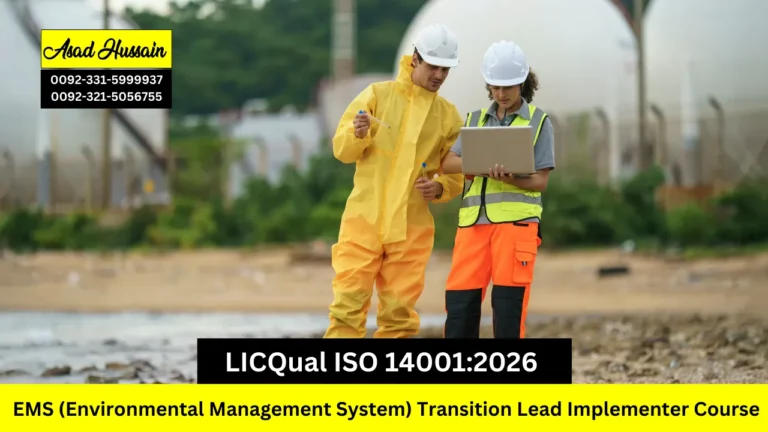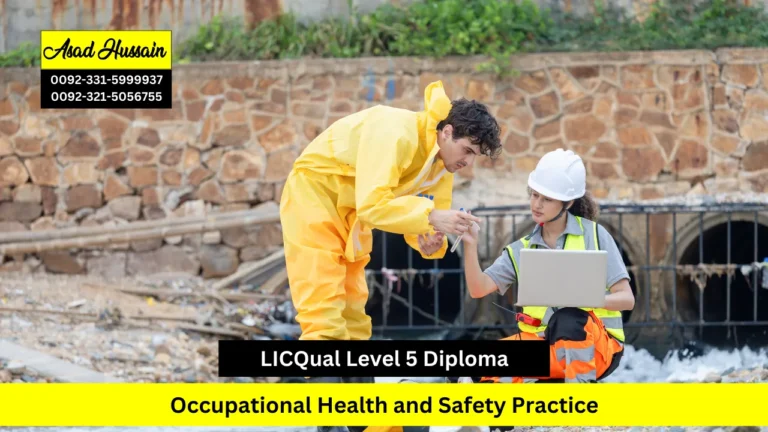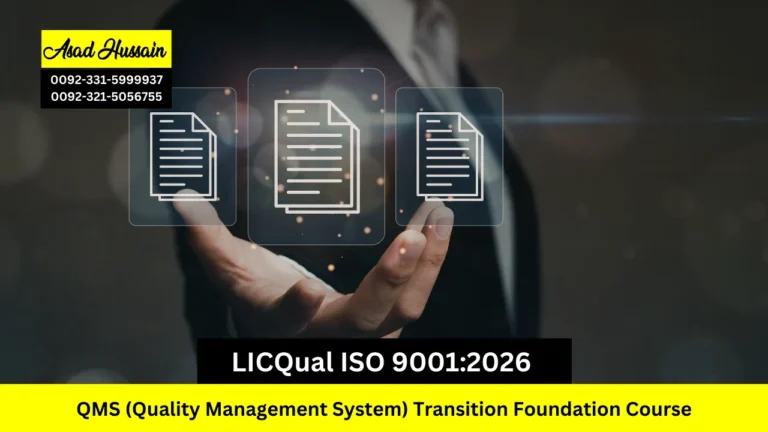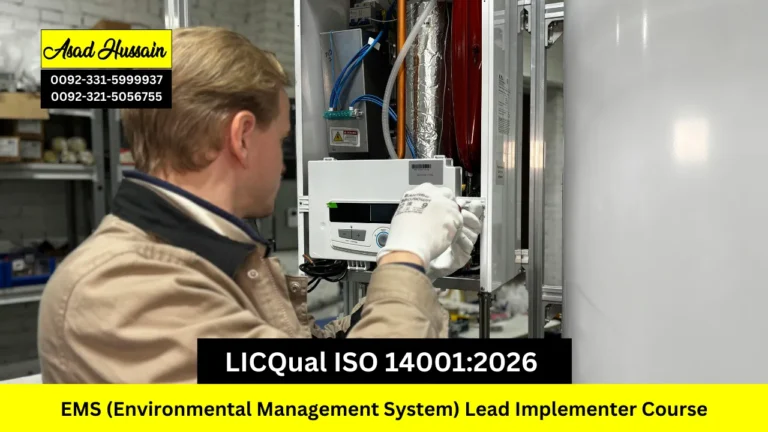In today’s rapidly evolving business landscape, environmental responsibility and sustainable development are no longer optional — they are essential. The IEMA Environmental & Sustainability Skills for Managers course is specifically designed to empower team leaders, department heads, and project managers with the practical knowledge and strategic insights needed to embed sustainability into their daily operations. This IEMA-certified program provides a strong foundation in environmental and sustainability principles, helping professionals align organizational practices with globally recognized environmental standards.
The IEMA Environmental & Sustainability Skills for Managers course focuses on integrating environmental awareness into management-level decision-making. Through real-world case studies, interactive modules, and industry-relevant scenarios, participants will learn how to reduce environmental impact, improve resource efficiency, and meet compliance obligations. This course equips managers with the tools to identify risks and opportunities while fostering a culture of sustainability across their teams and departments.
Whether you’re leading a manufacturing process, managing office operations, or developing strategic business plans, this course enhances your ability to align your role with sustainability goals. The IEMA Environmental & Sustainability Skills for Managers course is built around practical skills, ensuring that delegates not only understand environmental concepts but also know how to implement them effectively in the workplace. This makes it an ideal program for organizations looking to meet ISO 14001 requirements or advance toward their ESG (Environmental, Social, and Governance) targets.
Accredited by the Institute of Environmental Management and Assessment (IEMA), this course supports professionals in driving measurable change. Upon completion, learners will be able to champion environmental improvement projects, influence colleagues, and contribute meaningfully to their organization’s sustainability performance. The IEMA Environmental & Sustainability Skills for Managers qualification also strengthens personal career development by demonstrating a clear commitment to environmental leadership and ethical business practices.
By enrolling in the IEMA Environmental & Sustainability Skills for Managers course, you’re taking a vital step toward responsible business management. The skills gained will help your organization stay compliant, competitive, and future-ready in a world where sustainability is critical to success. Whether you’re just starting your sustainability journey or aiming to refine your leadership approach, this course delivers actionable value for professionals across all sectors.
Program Highlights
The IEMA Environmental & Sustainability skills for Managers consist of 6 mandatory units and 14 Guided Learning Hours for completed Qualification.
Mandatory Units
- Understanding Environmental and Economic Risks and Opportunities
- Compliance Obligations and Business Drivers for Change
- Assessing Environmental and Sustainability Impacts
- Enhancing Environmental Performance
- Analyzing Drivers and Barriers to Change
- Monitoring Performance and Applying Sustainability Across the Value Chain
To enroll in the IEMA Environmental & Sustainability Skills for Managers course, applicants are expected to meet the following general guidelines:
Educational Background:
There are no strict academic prerequisites for this course. However, a basic understanding of workplace operations, managerial duties, or environmental processes will help learners engage more effectively with the course content.
Minimum Age Requirement:
Candidates must be at least 18 years old. The course is tailored for individuals in supervisory, managerial, or leadership roles across all sectors.
English Language Proficiency:
A good command of the English language—both written and spoken—is essential. As the course materials, assessments, and discussions are delivered in English, learners may be required to demonstrate proficiency, particularly if English is not their first language (requirements may vary by training provider).
Professional Experience:
This course is ideally suited for managers, team leaders, and professionals who have influence over operations, people, or environmental performance. While prior experience in environmental management is not mandatory, individuals responsible for driving or supporting sustainability initiatives will gain the most value from the training.
- Understanding Environmental and Economic Risks and Opportunities
- Identify key environmental and sustainability risks relevant to business operations.
- Explain the link between environmental risks and financial or reputational consequences.
- Recognize opportunities for cost savings, innovation, and competitive advantage through sustainable practices.
- Evaluate how effective risk management can improve long-term organizational resilience.
- Compliance Obligations and Business Drivers for Change
- Interpret the main environmental compliance obligations relevant to different industries.
- Explain how legislation, regulation, and corporate social responsibility influence business decisions.
- Assess how customer expectations, investor demands, and market trends drive environmental change.
- Understand the role of sustainability in achieving organizational goals and maintaining a license to operate.
- Assessing Environmental and Sustainability Impacts
- Identify the direct and indirect environmental impacts of workplace activities.
- Evaluate how resource consumption, waste generation, and emissions affect ecosystems and communities.
- Apply impact assessment techniques to prioritize sustainability issues in day-to-day operations.
- Understand the importance of life cycle thinking in environmental decision-making.
- Enhancing Environmental Performance
- Describe strategies to improve energy efficiency, waste management, and resource optimization.
- Understand the role of management systems such as ISO 14001 in driving continual improvement.
- Set relevant environmental objectives, targets, and KPIs aligned with sustainability goals.
- Demonstrate how staff engagement and behavioral change contribute to environmental performance.
- Analyzing Drivers and Barriers to Change
- Explore internal and external drivers that support the adoption of sustainable practices.
- Identify common organizational barriers that hinder environmental initiatives.
- Apply change management techniques to encourage environmental improvement.
- Understand the role of leadership and communication in overcoming resistance to change.
- Monitoring Performance and Applying Sustainability Across the Value Chain
- Explain how to measure, monitor, and report on environmental and sustainability performance.
- Understand key sustainability metrics and how to use data for informed decision-making.
- Evaluate sustainability practices across the value chain, including suppliers and logistics.
- Promote sustainable procurement and encourage environmental responsibility beyond organizational boundaries.
The IEMA Environmental & Sustainability Skills for Managers course is specifically designed for professionals who have operational or strategic responsibility for managing environmental impacts and driving sustainability initiatives within their organization. It is ideal for individuals in roles where decision-making, supervision, or influence over teams and processes is part of their day-to-day responsibilities.
This course is particularly suited for:
- Managers, team leaders, and supervisors across all industries
- Department heads responsible for environmental performance or compliance
- Project managers involved in delivering sustainability-focused outcomes
- HSE (Health, Safety & Environment) and ESG (Environmental, Social & Governance) professionals
- Individuals seeking to enhance their leadership credentials in sustainability
- Professionals responsible for achieving or maintaining ISO 14001 certification
Whether you’re in manufacturing, construction, public services, finance, retail, or logistics, this course provides the essential skills to embed environmental and sustainability thinking into business management. No prior environmental qualifications are required—just a readiness to lead change and make a positive impact.







